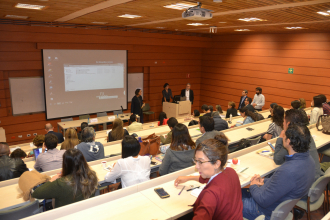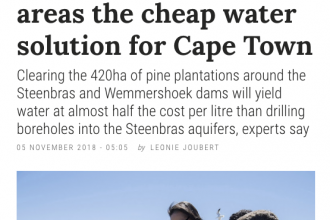This study estimates the optimal rotation period of various tree species in Kenya and applies it in the management of lumbering forests through optimal synchronization of forest plantations to achieve a steady supply to lumbering firms. The optimal rotation period of three tree species, pine, cypress, and eucalyptus, was estimated using data from Kenya Forest Service. A combined application of Chang simple production model and Faustmann model reveals the optimal biological harvest age is 25 years for pine, 25 years for cypress, and 14 years for eucalyptus.





